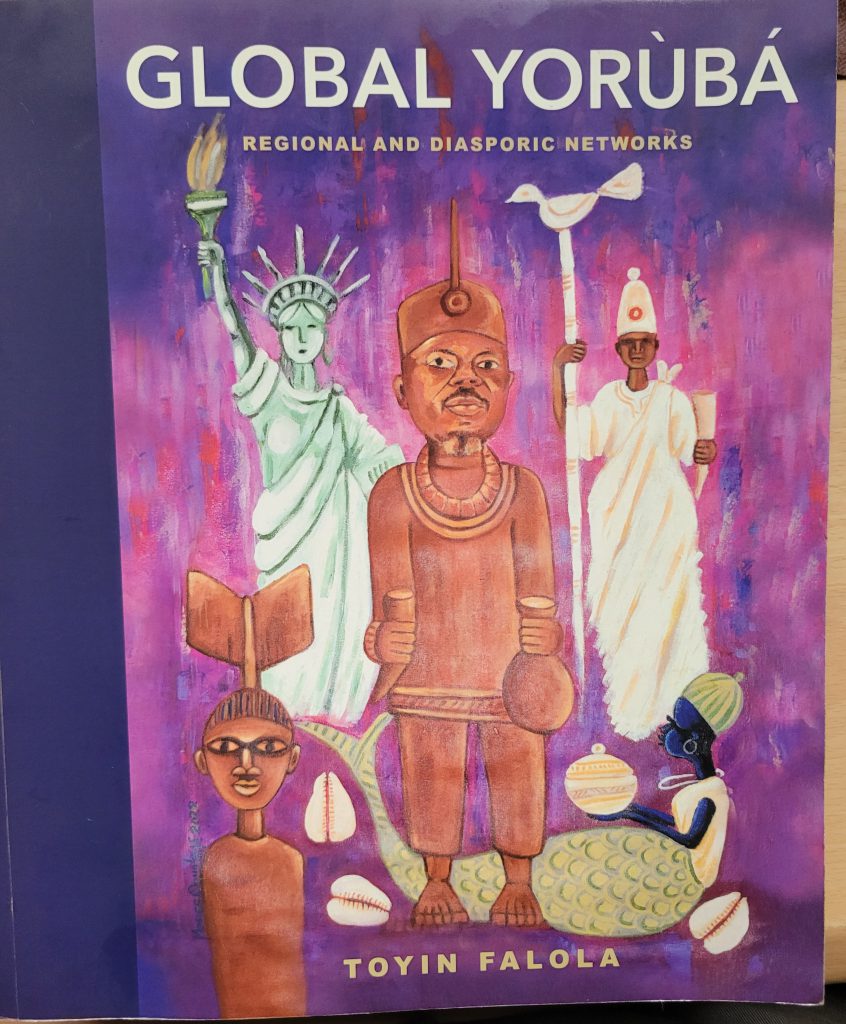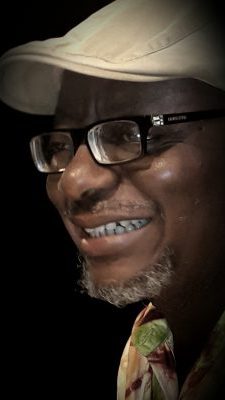Wisdom is better than strength- Famous Yoruba proverb
(A review of Global Yoruba: Regional And Diasporic Networks, Toyin Falola, Indiana Press, 2024)
The Yoruba Nation or ethnic group (whichever you prefer) is one of Nigeria’s three big ethnic nationalities. It is unarguably one of the country’s most urbane and progressive ethnic stock. It has to its credit so many first accomplishments, the country’s first secondary school was sited in its territory, it produced the country’s first lawyer, first Chief Justice of the Federation, first this and first that. It is also home to one of the country’s most erudite and accomplished politician of all times.
It is to this ethnic nationality that the world has been gifted with one of Africa’s most prolific and accomplished Historian after the generation of the highly venerated Profs Ade Ajayi, Kenneth Dike, Tekena Tanumo etc. Toyin Falola in writing Global Yoruba: Regional and Diasporic Networks, has with this book set an example of how and where to place the Yoruba nation in the comity of other ethnic nationalities either in Nigeria or across the continent.
In setting the premise on which the book was conceived, he writes, “Yoruba, as a language, language group, identity form, way of life, culture, and philosophical worldview, has been among the most studied by scholars since the advent of the academic study of, societies, peoples, and cultures in Africa.” Standing on this pedestal, the author goes on to unveil the study of the complex Yoruba nation going through its mythologies, arts, cultures, mores and traditions.

For those who are familiar with Falola’s writing oeuvre, this might not be a surprise. However, those who might be encountering him for the first time are going to be introduced to his awesome writing and a masterful deployment of historical materials about a great set of people.
In looking at the various aspects of the contributions of this group of people to the world’s body of knowledge and development he asserts, “Nollywood Yoruba has gone global, heavily watched in many African counties as well as Brazil and Trinidad. Yoruba artists have played a pivotal role in these developments, and in the academic discussion of literary and intellectual production focuses on their contributions. New media has helped to produce and reproduce global Yoruba culture and traditions on a pluriversal scope.” (p29). This needs no further clarifications with the fame of Nollywood movies around the world and the works of such early Yoruba artistes such as the late Hubert Ogunde, Duro Ladipo, Baba Sala and a host of others with their body of works in music, drama and so on. There are also writers such as Prof Wole Soyinka the first African to win a Nobel Prize in Literature, Femi Osofisan, Niyi Osundare, the late Kole Omotoso etc.
Turning to the many mythologies of the Yoruba and their knowledge systems, he writes magisterially about these covering Oduduwa, Obatala and how the Yoruba nation came to because “Mythology forms the basis of Yoruba philosophy: hence any understanding of the Yoruba people must first generate or erupt from an understanding of their philosophical understanding.” (p46)
No book or study on Yoruba system is complete without a study of Ifa (divination), which is often confused as a religion but in actual fact is not. This is what Falola goes into a deep explanation of how it works and what it stands for in Yoruba world view. According to him, “Ifa represents the pillar of the Yoruba civilization. It is not only integral to their day-to-day activities as a guiding spirit but also to the curriculum through which their world could be accessed. Although not a religion in itself, it is geomantic divination system that establishes, among other things, the Yoruba worship system.” (p86).
The 563-page book which is divided into three parts with an introduction and conclusion is a massive study of this group of people that have in various ways impacted the world beyond the borders of Nigeria where they are mainly dominant. The Part two, which looks at the Yoruba in the world of religion, explains for those who have often wondered why religion has not led to any large-scale schism among the people despite the proliferation of almost all world religions among them. He writes, “Yoruba religion thrived in the Atlantic environment because of its extraordinary flexibility and not because people proselytized the religion. The religion was usually nonjudgemental, which was underscored by its flexible character and its amenability to cultural and political situation where it was practiced.” (p214-215).
It examines the advent and actions of both Islam and Christianity and how the two religions have given the Nigerian flavour to the mode of worship of the two from the rise of what he calls “Yoruba Islam” to the growth and founding of Pentecostal churches by Nigerians. A variety of worship that has today become global through the itinerant Yoruba preachers and the mobility of the people of that stock. The advent of the Internet has also helped in spreading both religion and that of the Yoruba gods to other parts of the world. The role played by early Yoruba writers, artists and politicians did not escape Falola’s lens. He chronicles the important roles played by such early writers as D.O. Fagunwa, Isaac Delano, Adebayo Faleti and others in promoting the language of their people through their writing endeavours.
Of course, no book of that magnitude would even be considered written and complete without a chunk of space given to one of the greatest modern Yoruba thinker, elder statesman and politician Chief Obafemi Awolowo. According to him, “Awolowo’s politics and philosophy can be compared to the best of any political thinker from any region of the world. Though he was unable to govern Nigeria, the practicality of his political philosophy, now known as Awoism, cannot be denied.” (p392). At his death in 1987, the late Ikemba Nnewi Emeka Odumegwu-Ojukwu described him as “The greatest President Nigeria they had.” He was that revered.
Of note is also the chapter on the place of Ibadan in the Yoruba Nation state. The city which is regarded as the Intellectual capital of Yorubaland is introduced on a smaller scale to those who might be coming in contact with its story in this book. Falola had earlier done a massive book on the city (Ibadan: Foundation, Growth and Change, 1830-1960.)
In Global Yoruba, Falola has bested himself and has written a volume that covers a people that have been massively written about by various authors, historians, ethnographers, anthropologists, researchers, name it. But in this book, Falola has been able to touch fresh areas that make the book interesting and fresh to even a reader that must have read all past publications on the Yoruba people. Falola, a Distinguished Teaching Professor and Jacob Frances Sanger Mossiker Chair in the Humanities at the University of Texas at Austin, has written a book that is bound to be read by all those in search of fresh information and tapestry of knowledge on a people that are not short of being written about by great intellectuals because they are themselves a rare species of the Black race.


